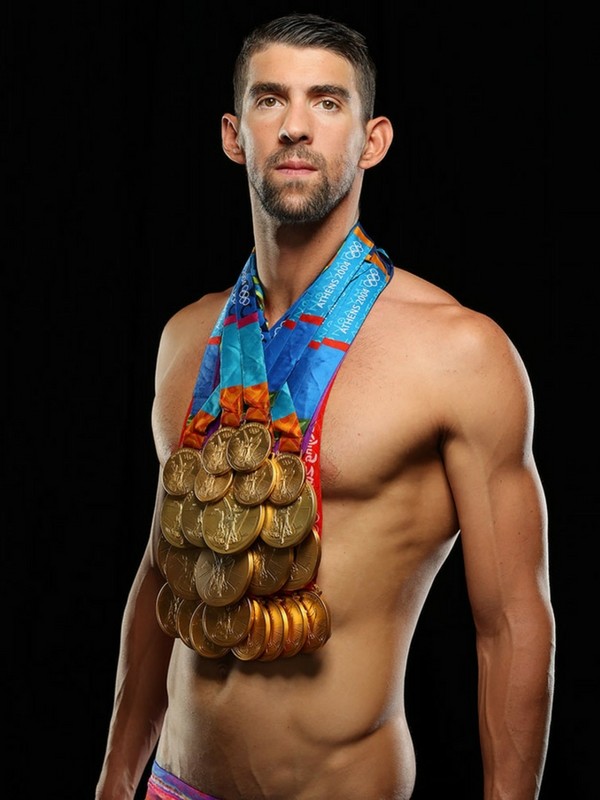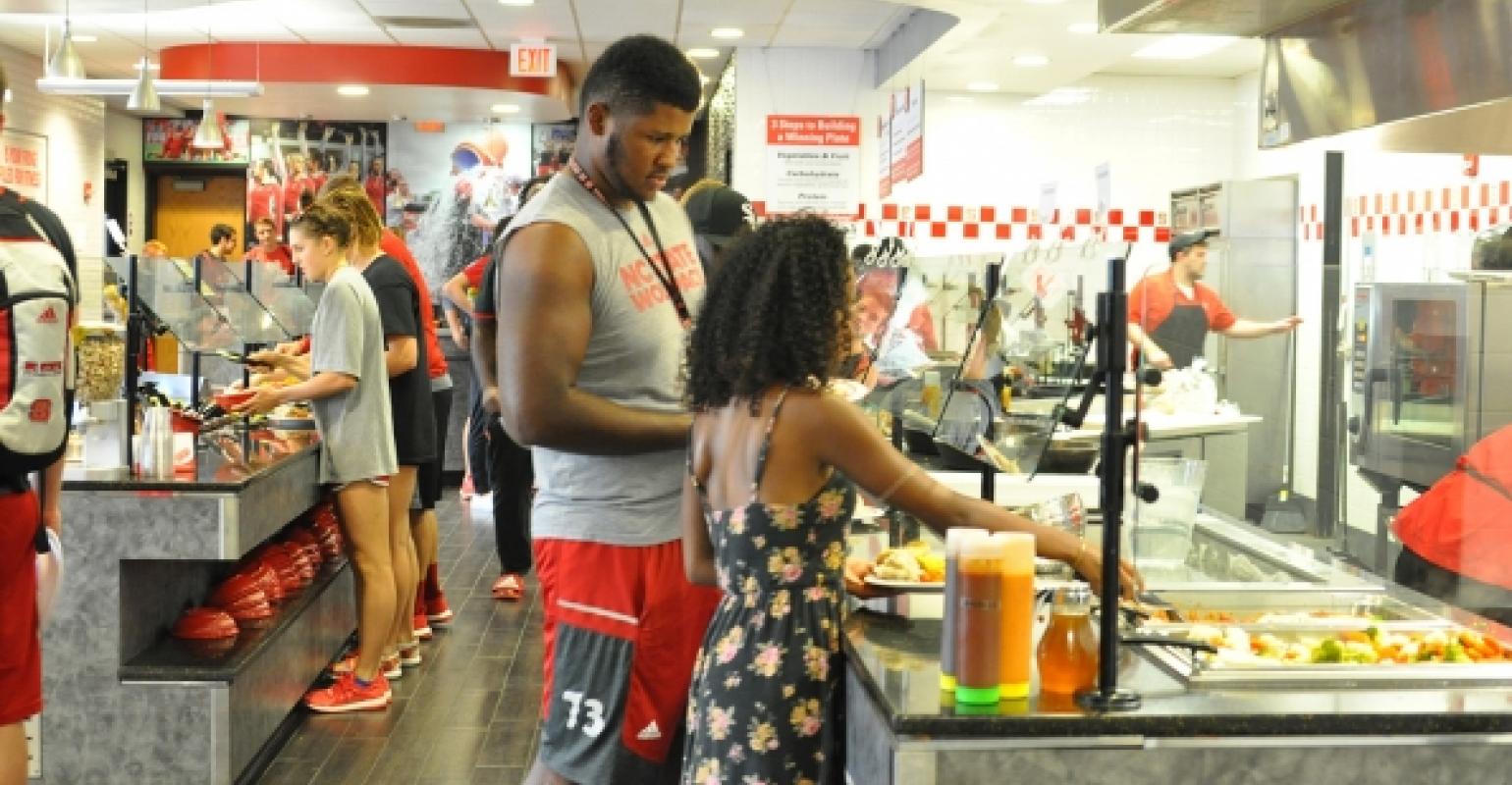Michael Phelps, former student-athlete at University of Michigan, is the most successful Olympic athlete of all time. The American swimmer has 28 (!) Olympic medals to his credit. Phelps is a true champ, not only in the swimming pool but also when it comes to preparing food. For breakfast, his menu consists of three chocolate-chip pancakes and three fried egg sandwiches with cheese, tomatoes, lettuce, fried onions and mayonnaise. Whut?! Yes, and as if that isn’t already a crazy breakfast, he also eats three slices of French toast with sugar, a omelette, a bowl of grits and two cups of coffee after that. O-m-g.
“Eat, sleep and swim, that’s all I can do”
Michael Phelps

Michael Phelps eats around 10,000 calories a day. That is a lot, but exercising on an empty stomach is a no go for Michael. Too little energy to perform optimally and while even running the risk of passing out.
As a student-athlete, you spend a lot of time on training and competitions, so nutrition is very important. But what is the best nutrition for student-athletes? In this article you read more about some essentials!
Carbohydrates
Carbohydrates are your body’s main fuel. Especially for sports, carbohydrates are an important source of energy. Therefore, it is good to eat a meal or snack with a lot of carbohydrates before you start training or competing. Think of rice, whole-weat pasta, whole-weat bread, oatmeal, fruit and potatoes. Good to know is that there are two different types of carbohydrates; namely slow and fast. Slow carbohydrates, as the name suggests, are digested more slowly by your body than fast carbohydrates because products with slow carbohydrates contain more fiber. Two to two and a half hours before your sports performance, whether it’s a competition or training, it is useful to eat a carbohydrate-rich meal with slow carbohydrates, such as whole-wheat pasta or oatmeal porridge. It is best to eat a snack with fast carbohydrates, like a banana, half an hour before you start.
Proteins
After exercise, it is important to reward your body. And no, we don’t mean rewarding with that one tasty chocolate bar in the cupboard, but with food that ensures the recovery of your body. Dairy products, eggs, meat, fish, beans, nuts and soy all provide a lot of protein. It is best to get protein within half an hour after your sports performance to help your body recover. The amount of protein you should take is often exaggerated. Unfortunately, the thought ‘if I eat more protein, I will recover faster’ doesn’t hold true. Your body has a maximum amount of protein that it can process.
Hydration
During exercise you lose a lot of fluid through sweating. All the fluid that you lose during exercise must be replenished. By drinking enough, you prevent dehydration. Dehydration can lead to becoming extremely tired during exercise, and you certainly don’t want that if you want to perform optimally. A great guideline to prevent a shortage of fluids is to drink 125 to 250 milliliters per 15 minutes during a workout. For all sports activities that last less than an hour, there is no need to take sports drinks and it is best to only drink water. In endurance sports or activities, with high effort lasting longer than an hour, it can be useful to make use of sports drinks. The sports drink will ensure that your energy level remains well.
We hope these tips are helpful to you. You should definitely watch the video below, in which a DI student-athlete shows what she eats all week and shares meal ideas!
If you have read our University Spotlights, you must have seen that the facilities in America are way more professional than in other countries. On all campuses, there’s a dining hall you can go to to grab some food. Often also with a special department, to which only the student-athletes have access. The food is even healthier and specially made for athletes to perform well. This site lists the best college dining halls in America, check it out!

Do you want to be a student-athlete or do you just want more information? Click on the button below, we are happy to help you!







